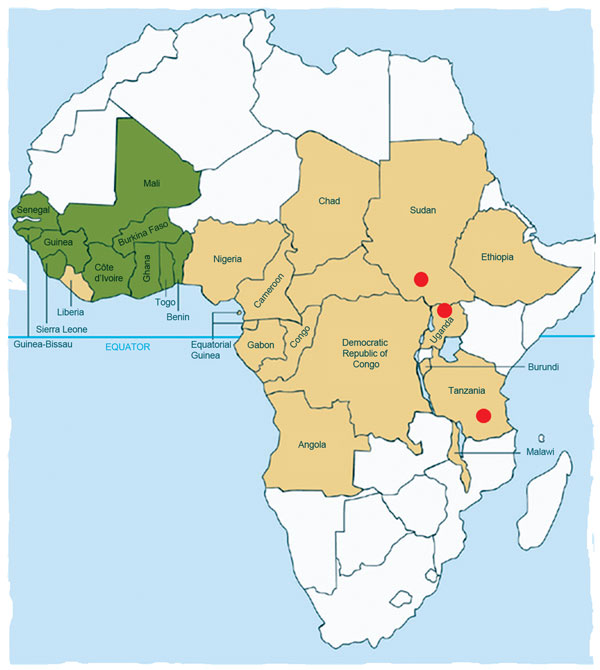Volume 19, Number 9—September 2013
Synopsis
Nodding Syndrome
Figure 3

Figure 3. . . Countries in the former Onchocerciasis Control Programme in western Africa in which onchocerciasis was eliminated as a public health problem through vector control (green); countries in the African Programme for Onchocerciasis Control in which onchocerciasis control is ongoing through annual mass treatment with ivermectin (beige); and areas in Southern Sudan, northern Uganda, and southern Tanzania in which nodding syndrome has been reported (red circles).
Page created: August 20, 2013
Page updated: August 20, 2013
Page reviewed: August 20, 2013
The conclusions, findings, and opinions expressed by authors contributing to this journal do not necessarily reflect the official position of the U.S. Department of Health and Human Services, the Public Health Service, the Centers for Disease Control and Prevention, or the authors' affiliated institutions. Use of trade names is for identification only and does not imply endorsement by any of the groups named above.